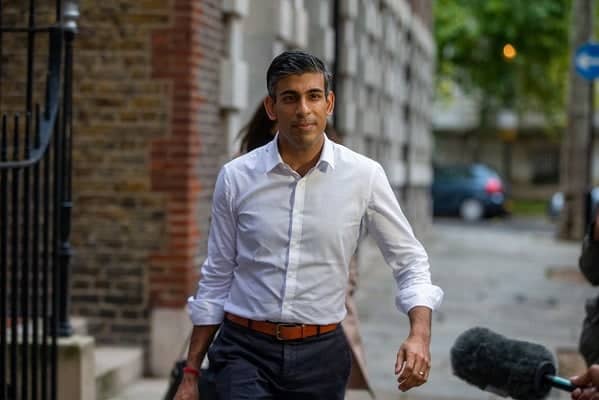The surprisingly resilient U.S. economy means that cheap small-cap stocks should be poised for a catch-up rally, according to Goldman Sachs. Portfolio strategist Lily Calcagnini said in a note to clients that the firm’s models show the Russell 2000 small-cap index should outperform over the next 12 months. “The Russell 2000 should rise by 14% during the next 12 months, according to a simple model based on US economic growth and starting valuations that has explained roughly two-thirds of Russell 2000 returns between 1995 and 2015,” the note said. “This potential return represents 5 pp of outperformance vs. our S & P 500 forecast of +9%, but the Russell 2000’s higher return comes with more risk,” the note said. Goldman economists are more optimistic than the Wall Street consensus, and small cap stocks have historically been economically sensitive. One simple way for investors to invest in the broad universe of small cap stocks is exchange traded funds. There are many ETFs that offer investors exposure to the small-cap space, including several large index funds with low fees. The iShares Core S & P Small-Cap ETF (IJR) is the largest small cap ETF with more than $67 billion and an expense ratio of 0.06%. The fund tracks the S & P Small-Cap 600 index. BlackRock also has the iShares Russell 2000 ETF (IWM) with more than $50 billion of assets and an expense ratio of 0.19%. The Vanguard Small-Cap ETF (VB) tracks the CRSP US Small Cap Index instead of the Russell 2000 index, has more than $40 billion in assets and is cheaper at 0.05%. Vanguard also offers a Russell 2000 ETF, VTWO , with an expense ratio of 0.10% and about $11 billion in assets. The $13.7 billion Schwab U.S. Small-Cap ETF (SCHA) tracks a Dow Jones index and has an expense ratio of 0.04%. While the broad index funds above have all returned less than 10% this year, some active funds have seen better results. The best-performing U.S. small cap ETF this year is the Janus Henderson Small Cap Growth Alpha ETF (JSML) , with a total return of 21.9%, according to FactSet. The $135 million fund follows a custom index and has an expense ratio of 0.30%. For investors who don’t want to double down on growth strategies after a run-up in tech this year, the Pacer US Small Cap Cash Cows 100 ETF (CALF) has a total return of 11.2%, outperforming the index funds. The fund has more than $2 billion in assets and an expense ratio of 0.59%. — CNBC’s Michael Bloom contributed to this report.








